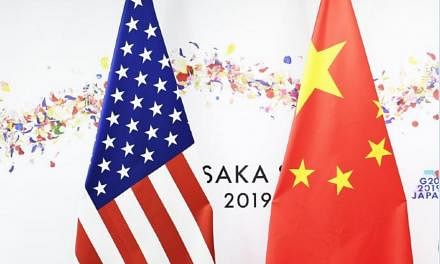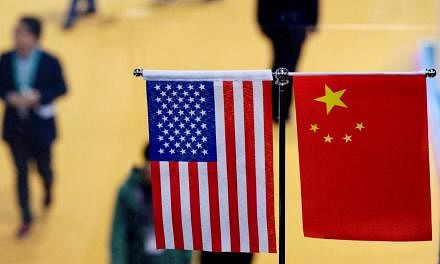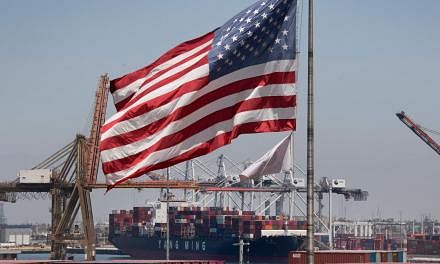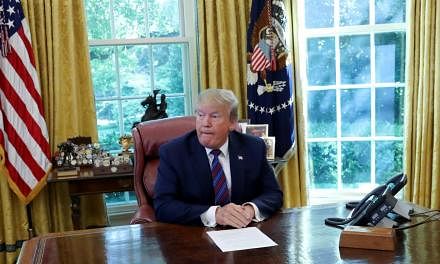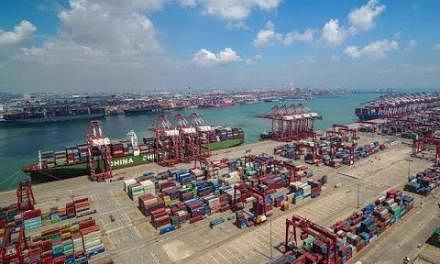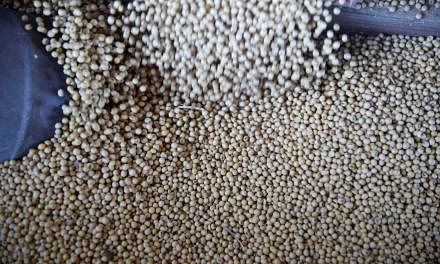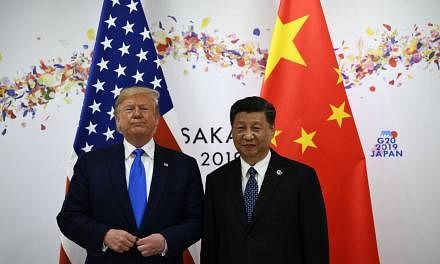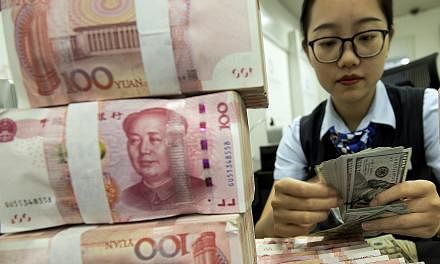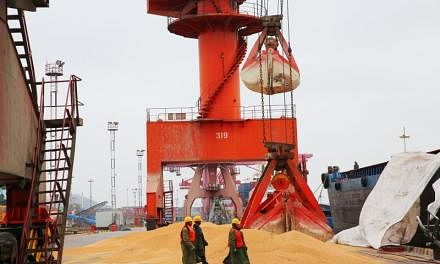HOUSTON/CHICAGO (REUTERS) - US energy, agricultural and chemicals companies are girding for a summer standoff over trade as a
trade war between the world's two largest economies officially began Friday (July 6).
The Donald Trump administration followed through with its threat to impose tariffs on US$34 billion worth of Chinese products, a significant escalation of a fight that could hurt companies and consumers in both the United States and China, despite industry lobbying efforts.
Earlier this year, the United States levied tariffs on steel and aluminum from China and elsewhere.
Lobbying efforts are now focused on convincing President Donald Trump to not put tariffs on a second list of mainly energy, plastics and chemicals worth about US$16 billion, said industry officials.
China has vowed to respond to any new tariffs, threatening to further escalate the trade conflict between the world's two largest economies.
The American Petroleum Institute, which represents oil and gas producers, backed a bill that would have Congress vet future tariffs proposed on national security grounds. The bill has stalled in the Senate.
"We've had meetings with members of Congress to press the issue," said Lee Fuller, a vice president at oil and gas trade group Independent Petroleum Association of America. It is requesting the administration "look at better alternatives than they have so far."
The IPAA favours granting more tariff exclusions to products not typically made in the United States, including certain specialty steel used in oil drilling.
China's list of goods facing retaliatory tariffs include US crude oil, plastics and chemicals, all industries that have rapidly expanded using abundant US shale oil and natural gas to drive exports to China.
"I put millions of dollars into equipment and infrastructure on the basis of exporting a heck of a lot more to China. I'm at risk," said Marc Levine, chief executive of Plantgistix LLC, a Texas-based plastics resin blender, packager and shipper.
If China goes ahead with tariffs on US plastics, it "could have a very clear negative effect on resin producers and others here to support the huge increase in production - railroads, truckers, pallet manufacturers and ocean carriers," Levine said.
Chinese retaliatory tariffs on US$5.4 billion worth of US chemicals goods "are direct hits" on recent production expansions, said Ed Brzytwa, director of international trade for the American Chemistry Council.
"If those come into effect, we'll have to close down plants and jobs will be at issue," he said.
The ACC opposes the Trump administration's plan to put tariffs on US$2.2 billion worth of Chinese plastics, Brzytwa said, saying: "We didn't ask for that."
Agriculture lobbyists have resigned themselves to tariffs from China, the largest buyer of US agriculture commodities, following the imposition of tariffs earlier this week by the European Union, Canada and Mexico.
"We're primarily battening down the proverbial hatches ... and hoping the administration will throw that Hail Mary for us,"American Soybean Association spokeswoman Wendy Brannen said.

